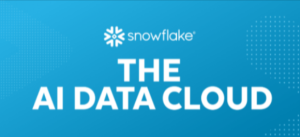The role of data in today’s healthcare and life sciences landscape has never been more critical. An organization’s ability to manage data comprehensively improves patient care, streamlines operations, and drives innovation. Snowflake’s AI Data Cloud can help healthcare providers overcome data silos, compliance issues, and real-time insights challenges. They can get a more comprehensive view of patients by integrating disparate data sources across healthcare systems, thereby improving clinical outcomes, and allocating resources more efficiently. As a result of this advanced platform, providers, payers, and life sciences firms are able to collaborate seamlessly across the healthcare ecosystem and harness the power of their data.
This article delves into the transformative impact of Snowflake’s AI Data Cloud on healthcare and life sciences. It underscores the pivotal role of data management in enhancing operations and patient care, offering a hopeful vision for the future.
Understanding the Snowflake AI Data Cloud:

Snowflake Data Cloud stands out in revolutionizing how organizations manage and analyze data, particularly in healthcare and life sciences. Its unique features, such as the ability to consolidate disparate data sources into a unified platform, break down silos, and provide real-time insights, make it a valuable asset for healthcare providers and life sciences companies. This platform’s capability to consolidate unstructured, semi-structured, and structured data into a single, secure environment is a game-changer, creating a comprehensive patient view, streamlining clinical operations, and driving innovation in drug development.
Furthermore, Snowflake’s AI Data Cloud, with its robust security measures, enables healthcare providers to innovate in a rapidly evolving environment. By combining advanced analytics, machine learning, and secure data sharing, it helps healthcare providers better understand patient data, improving diagnoses and treatment plans. It also facilitates collaboration between institutions, enabling the exchange of research and best practices. The platform’s secure nature ensures that critical healthcare operations can access sensitive patient information while protecting it, instilling confidence in the system. Mastering the use of an AI Data Cloud will be crucial for organizations striving to improve patient care and operational excellence through data-driven strategies.
As a result of this holistic approach, healthcare organizations are positioned to thrive in an evolving landscape. This is not just by enhancing health outcomes but also by ensuring compliance with rigorous regulatory standards.
Challenges in Healthcare & Life Sciences Data Management
Prevalence of Data Silos:
Healthcare organizations often isolate data between departments, systems, and institutions. As a result, critical health information is fragmented, particularly during the transition from hospital to home. As an example, a regional healthcare organization may use separate electronic health record (EHR) systems for different departments, resulting in fragmented patient information. Patients transitioning from hospitals to home care may have their medical records stored in multiple systems that do not communicate, resulting in outdated or incomplete records.
Decision-Making and Patient Care:
Due to the lack of a holistic view of patient journeys, medical errors and duplicate tests are more likely to occur, compromising patient safety and treatment quality. Siloed data, for instance, may prevent physicians from knowing about a patient’s recent hospital visit, resulting in redundant tests or conflicting medications.
Scalability Issues:
Healthcare organizations often need help handling the growing amount of healthcare data due to outdated infrastructure. This leads to slow data processing and delays in gaining timely insights into problems. Legacy systems, for example, may fail to process data quickly, putting critical insights into patient health trends at risk. Patients at risk of chronic conditions, such as diabetes or heart disease, can suffer from a lack of timely interventions due to this problem.
Data Security and Compliance:
Health data is sensitive and subject to stringent regulatory requirements, so protecting it is paramount. When patient records are stored across multiple siloed systems without proper encryption or access controls, there is an increased risk of unauthorized access. Human error increases when each system requires its own security measures, complicating compliance efforts. Establishing a secure framework for data management that adheres to regulatory guidelines is essential for maintaining trust with patients and stakeholders.
Key features of the Snowflake AI Data Cloud to address these challenges:
Eliminating Data Silos:
Snowflake’s centralized data platform allows healthcare organizations to consolidate disparate data sources, facilitating seamless access to patient information across departments and institutions. Healthcare providers can ensure real-time access to patient information by integrating electronic health records (EHRs), imaging files, and wearable device data into a single platform. Integrating these systems enables patients to have a more comprehensive view of their health during transitions from hospitals to home care.
Enhanced Decision-Making and Patient Care:
Snowflake’s advanced analytics capabilities enable healthcare professionals to gain insights from integrated datasets, thereby improving decision-making. For instance, healthcare providers can identify potential medical errors or unnecessary duplicate tests using machine learning algorithms on aggregated patient data. As clinicians use a holistic view of each patient’s journey to make informed decisions, such proactive approaches improve patient safety and treatment quality
Optimized Scalability and Performance:
Health care organizations can manage growing volumes of data with Snowflake’s virtually limitless scalability. Specifically, this is critical for institutions who generate large amounts of data, such as clinical trials and genomic studies. For example, a research hospital could analyze extensive datasets quickly without encountering data processing delays. It is this capability that allows timely insights to be gained that can help address emerging health issues or optimize operational workflows.
Robust Data Security and Compliance:
Snowflake prioritizes data security and compliance with stringent regulatory requirements such as HIPAA. Sensitive health information is safeguarded by robust encryption, access controls, and audit trails. The implementation of role-based access controls can, for instance, ensure that only authorized personnel are able to access or modify patient records. In addition to protecting patient confidentiality, this framework demonstrates a commitment to data governance. This builds trust with patients and regulatory bodies.

Success Stories:
NutaNXT, a leader in AI/ML solutions with extensive data engineering expertise, has formed strategic partnerships with Snowflake to address challenges in healthcare & life sciences data management. This partnership provides reassurance to healthcare organizations, demonstrating the expertise and support available to them in navigating complex data challenges.
The NutaNXT team assisted a leading healthcare company implement Snowflake AI Data Cloud to address complex data challenges.
Background and Challenges:
A leading healthcare and life sciences staffing company faced substantial data architecture challenges. After initially utilizing HDInsight in Azure, the company decided it needed to be simpler and switched to Databricks. However, this, too, proved to be burdensome, leading to high operational costs and inefficiencies. Data ingestion involved many challenges, including the need for a third-party onboarding tool that added complexity and cost. Consequently, the company’s healthcare data environment costs rose to approximately $2.4 million annually, with significant resources dedicated to data pipeline maintenance and troubleshooting.
Role of NutaNXT:
NutaNXT addressed these challenges by implementing Snowflake AI for the healthcare provider, effectively breaking down data silos and enhancing decision-making capabilities. NutaNXT streamlined the data ingestion process and brought in simpler tools by leveraging its expertise in data integration and management. The integration improved scalability and data security, ensuring that sensitive patient information was handled with the utmost care. As a result, healthcare providers could focus on delivering superior patient care while reducing data management costs. Due to these efforts, NutaNXT not only enabled more efficient operations, but also enabled informed decisions to be made by the organization.
Outcome:
With NutaNXT’s support, the healthcare provider successfully migrated its data lake to Snowflake. This transition brought several key benefits:
Simplified Data Management: The move to Snowflake significantly reduced administrative burdens associated with data management. The platform’s design allowed for more straightforward orchestration and transformation of data.
Cost Reduction: Monthly costs for managing the data environment plummeted from $200,000 to $14,000 which is close to 90%, resulting in an annual savings of approximately $2.2 million. Snowflake’s multi-cluster shared architecture and per-second pricing model made this possible.
Enhanced Performance: The implementation led to a 99.9% pipeline success rate and a 75% reduction in data warehouse runtime. The company processed over 100 GB of data daily, achieving rapid response times for client reporting needs.
Improved Data Accessibility: By centralizing its data into a single source of truth within Snowflake, the healthcare provider could create real-time dashboards using Microsoft Power BI. This enhanced visibility allowed for better tracking of staffing metrics and improved responsiveness to client demands.
Conclusion:
Snowflake’s AI Data Cloud effectively addresses challenges such as data silos, scalability, and compliance in healthcare and life sciences organizations. As data continues to evolve, Snowflake’s solutions can be utilized to drive innovation for organizations. Its features, including real-time analytics, secure data sharing, and interoperability, can significantly enhance operational efficiency and open the door to innovative patient care and research approaches.
Organizations can enhance operational efficiency and open the door to innovative patient care and research approaches by leveraging Snowflake’s capabilities. Our Snowflake AI Data Cloud implementation team at NutaNXT can help you achieve significant cost and performance savings, offering a promising outlook for the future of healthcare data management.

